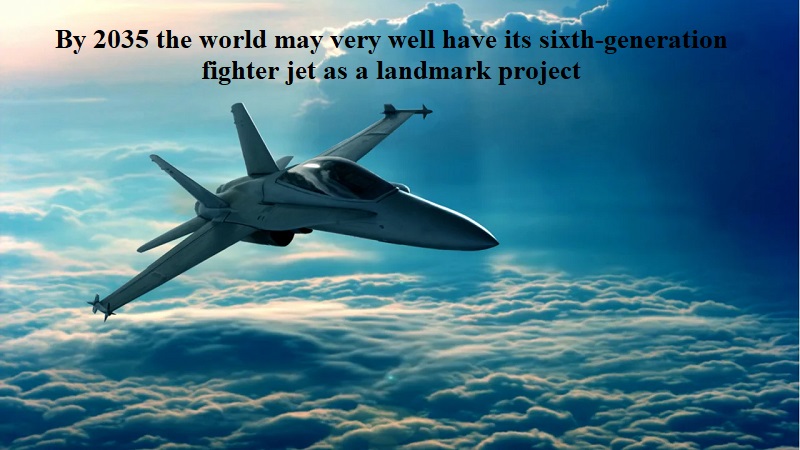
A collaborative effort between the United Kingdom, Italy, and Japan is poised to bring about the development of a sixth-generation fighter jet by 2035, with the project reportedly adhering to its established timeline.
As indicated by one of the Global Combat Air Programme’s industrial partners to the Financial Times, even though Saudi Arabia has expressed interest in joining the initiative, the project remains on track. The endeavor, launched in December 2022, seeks to unite the capabilities of the United Kingdom, Italy, and Japan to construct an advanced sixth-generation fighter jet by the year 2035.
Presently, the pinnacle of fighter jet technology rests with fifth-generation aircraft like the Lockheed Martin F-35 Lightning and Lockheed Martin F-22 Raptor, employed by the United States Air Force.
Herman Claesen, the Managing Director of Future Combat Air Systems, emphasized the pivotal significance of adhering to the 2035 deadline for the tri-national coalition to deliver the sixth-generation fighter jets.
In an in-depth analysis titled “Inside Saudi Arabia’s bid to build the world’s most advanced fighter jets,” WION revealed that Saudi Arabia is resolutely striving to become a full participant in the Global Combat Air Programme. Despite Saudi Arabia’s keen interest, Japan has expressed reservations regarding its inclusion.
While the UK and Italy are amenable to Saudi Arabia’s participation, opposition has emerged from Japan. The collaborative trio of the UK, Italy, and Japan is aiming to expedite the aircraft’s development by employing cutting-edge manufacturing methodologies and digital tools.
Saudi Arabia has emerged as a prominent purchaser of combat aircraft from European nations, with a notable emphasis on acquisitions from the United Kingdom. Additionally, Saudi Arabia is actively promoting the growth of its domestic defense industry.
The UK’s Ministry of Defence underscored its commitment to delivering this cutting-edge fighter jet in collaboration with its partners by the designated target year, 2035.
Herman Claesen conveyed that various options, such as observer status or full partnership, could be explored to accommodate interested parties within the project, stating this to the Financial Times.
This Global Combat Air Programme runs in parallel with a competing Franco-German initiative called the Future Combat Air System (FCAS), which has encountered industrial tensions between its partnering nations.

Post Your Comments